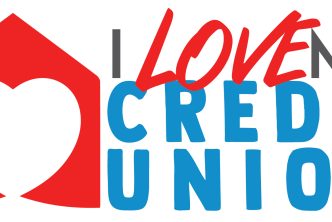by Karen Maierle, Credit Union Inside Account Representative, MGIC
The housing market was one of the few bright spots in 2020. In fact, sales of existing homes reached the highest level since December of 2006.1 Fueled by record low-interest rates and pent-up demand, pre-qualified first-time homebuyers had a hard time finding a house to purchase due to the shortage in inventory.
But many saw record low rates as an opportunity to refinance…and credit unions certainly benefited from that. In fact, credit union activity ended with $291.6 billion in first mortgages, up 66% from 2019.2 Phones were ringing off the hook with members looking to refinance so it wasn’t necessary for credit unions to work with referral partners, like real estate agents or financial planners, to build new business.
2021 is expected to be another booming year with $2.49 trillion forecast for mortgages originations. But unlike last year, many are predicting it will be fueled mainly by purchases. The inventory shortages that held back many would-be homeowners will persist, but there may be ways your credit union can capitalize on the opportunity to help your qualified members become homeowners.
Let’s examine why your credit union should want to focus on more purchase money business in 2021:
- Attract younger members and deepen your wallet share. The average age of a first-time homebuyer is 33 years old.3 The average age of a credit union member is 47.4 What better way to attract younger members to your credit union than by helping them with what is often the largest financial purchase of their lifetime? By doing so, you have the chance to also earn their checking and savings accounts, their car loan, their home equity loan, and their credit cards.
- Build member trust and deepen relationships. No one can offer better customer service and education than your credit union. Credit unions are member-centric by nature, and mortgages can be complicated and confusing. By helping to educate your members and walk them through the process, you can earn their trust and strengthen the relationship.
- Differentiate your credit union. Mortgages are a great way to build your loan-to-share ratio. By crafting portfolio solutions that meet your members’ needs, you can create an intermediate ARM product to hold in your portfolio. You can build your loan-to-share faster with $150,000 mortgage loans versus $20,000 auto loans. If you think your members won’t want an ARM in a low interest rate environment, I beg to differ. If you create a portfolio solution that goes beyond Agency (Fannie Mae and Freddie Mac) guidelines, your members won’t be able to go to the mortgage banker down the street for their loans. Another benefit of intermediate ARMs? They eliminate the interest rate risk of holding a 30-year fixed asset on your books.
- Increase quality of life for members and their families. Homeownership helps build generational wealth. The median net worth for homeowners in 2019 was $255,000, compared to just $6,300 for renters. That’s 40 times greater wealth for homeowners than those without property in their name.5 If you can help your members become homeowners, you will not only be setting them up for financial health in the future, but potentially the futures of their children and grandchildren. And, as I’m sure you know, homeownership builds safer neighborhoods and creates stability for families. Homeowners’ children are more likely to do better in school. In addition, homeowners are 2.5x more likely to have good health.6 Another fact: Millennials (those born between 1980 and 1996) will have spent more than $90,000 on rent by the time they hit 30.7 That could have been used for a really nice down payment!
For more information on how you can tap into the purchase market in 2021, contact your CUNA Mutual Group Account Executive at 800.356.2644.
- Existing-Home Sales Hit Highest Level Since December 2006 (prnewswire.com)
- Credit Unions Didn’t Do as Well in 2020, Revised Mortgage Numbers Show | Credit Union Times (cutimes.com)
- The Median Homebuyer Age Is Now So Old: We Better Live Longer! (financialsamurai.com)
- Aging credit union membership – CUInsight
- A Homeowner’s Net Worth Is 40x Greater Than a Renter’s | Real Estate with Keeping Current Matters (simplifyingthemarket.com)
- Social Benefits of Homeownership and Stable Housing (nar.realtor)
- 19+ Massive Millennial Spending Statistics for 2020 (spendmenot.com)





